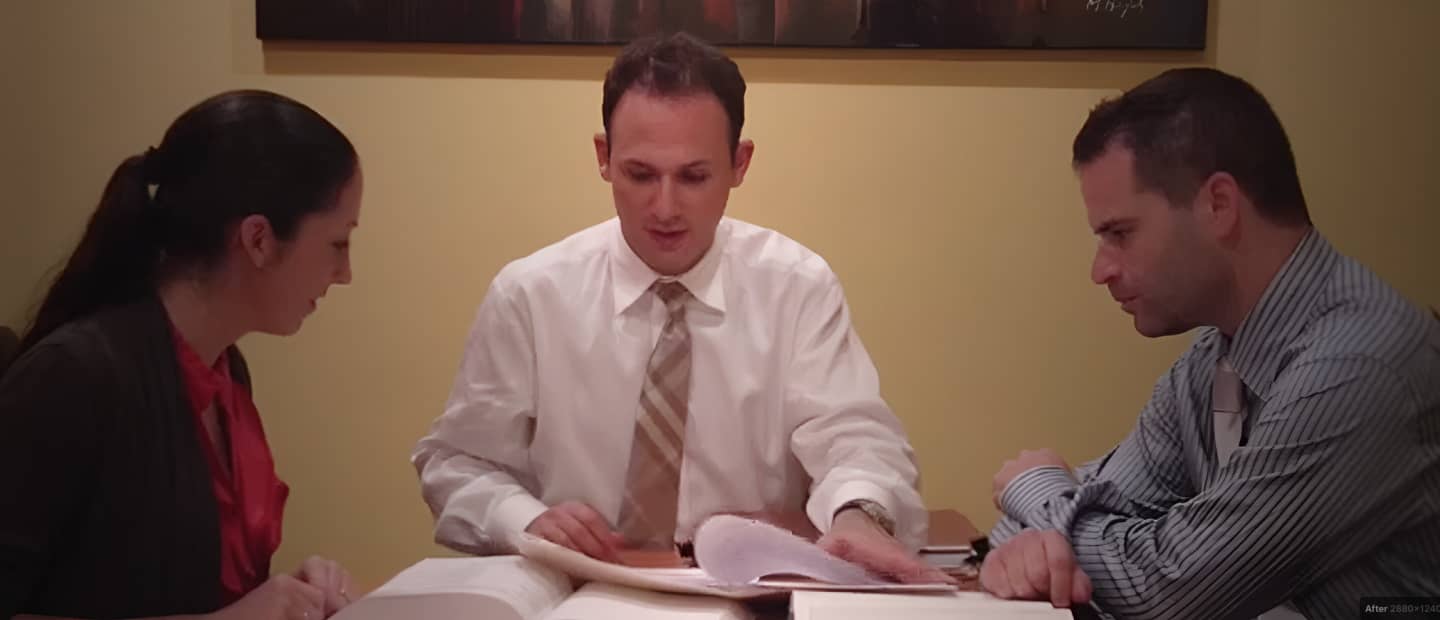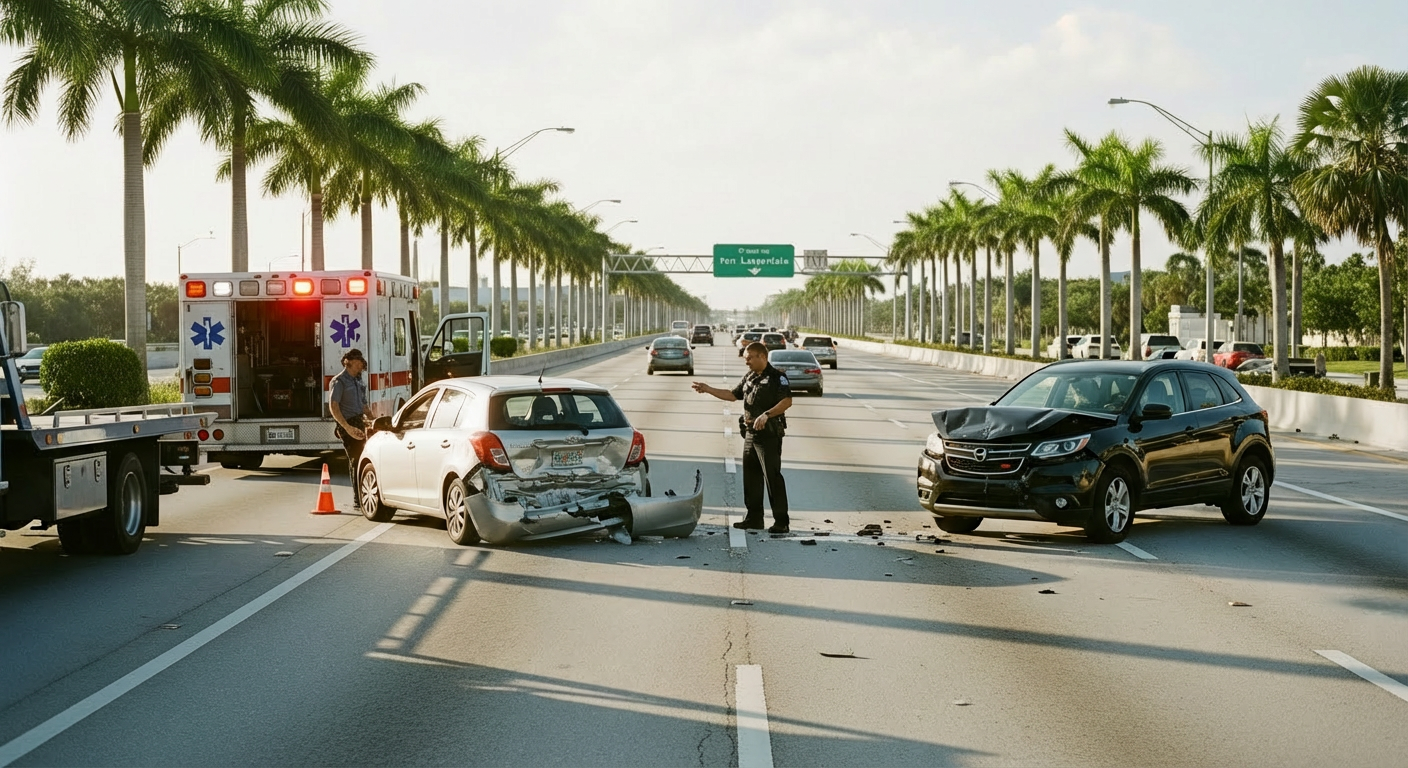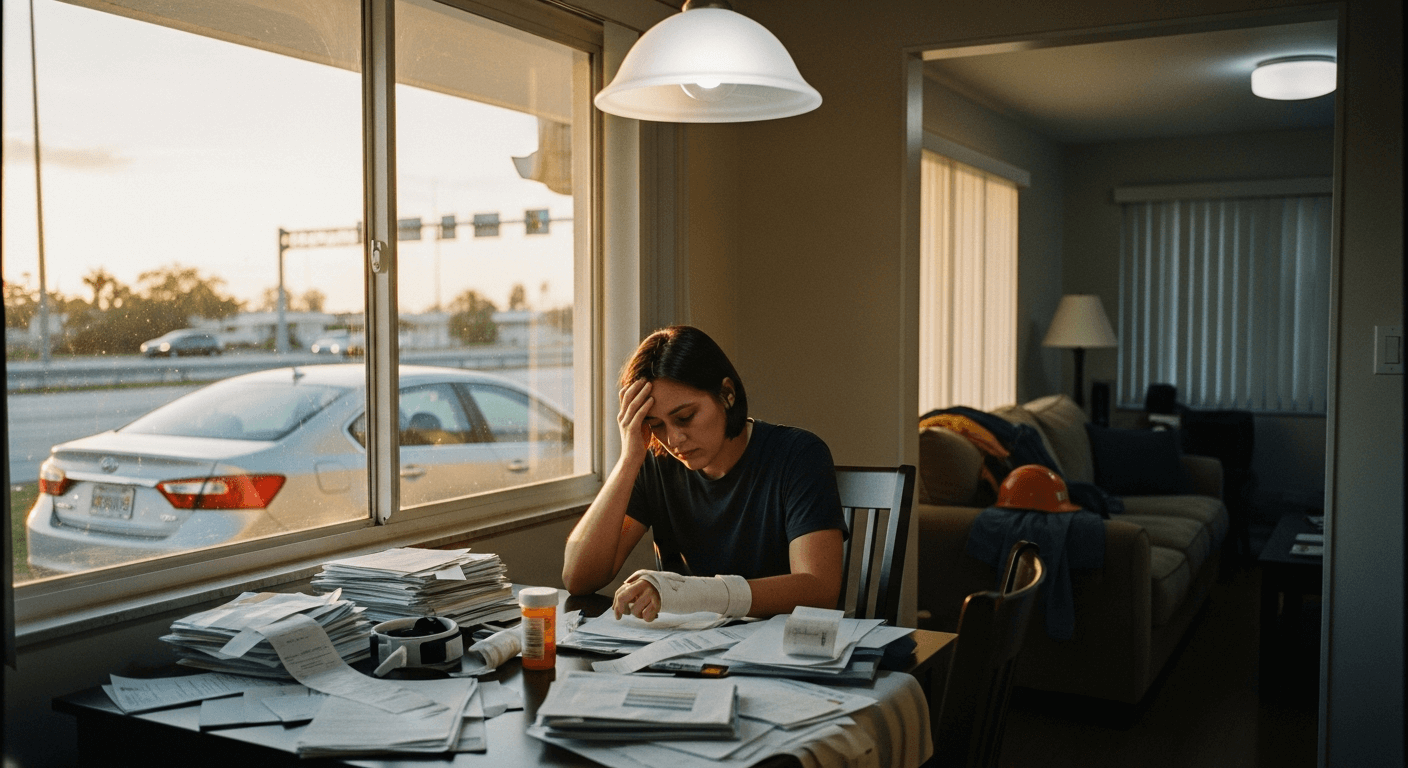How To Prove Liability in a Slip and Fall Case
Table of Contents
How To Prove Liability in a Slip and Fall Case

Pursuing Compensation with a Florida Personal Injury Attorney
Each year, there are millions of individuals that find themselves unintentionally injured by slipping, tripping or falling, with approximately 8.9 million individuals visiting the emergency room each year for medical help in 2011. While many people may think of falls as a minor issue leading only to minor bruising and discomfort, this is not always the case. In 2009, there were 25,000 deaths related to falls and it has become the second-leading cause of unintentional death in residential buildings and local communities. If you’re wondering about how to prove liability in a slip and fall case, call Ace Your Case to speak with a skilled Fort Lauderdale slip and fall accident lawyer today.
How Can a Slip and Fall Accident Lawyer at Ace Your Case Help You Prove Liability in Your Injury Claim?
At Ace Your Case, we know that people can be prone to accidentally leaving items out that may cause tripping, spilling liquids that can be at fault for a slip accident, or other actions that may be the cause of harm; however, these are often misfortunes that occur without any purposeful oversight on the part of the homeowner or property manager. It gets tricky in situations when injuries are the direct result of negligent actions. We understand that damage from a slip and fall can potentially result in exorbitant expenses including therapy, rehabilitation, medications, hospital fees, and ambulance charges, not to mention the income lost during recovery. That is where we step in as qualified Fort Lauderdale slip and fall lawyers who can fight to obtain your rightful financial compensation.
Get Free Advice From An Experienced Personal Injury Lawyer.
What qualifies as a slip and fall accident?
First things first, it is important to look at the three main types of accidents that can transpire while out and about, either in a home, business, at work or out in a public place. Any time that a person loses their footing, falls, slips or trips on another’s property it can be considered a slip and fall case.
Some of the most common types include:
Trip-and-fall
When an uneven, unstable surface or an object in their path causes the individual to trip, resulting in injury
Slip-and-fall
The floor or surface that the individual is on is slippery causing them to lose their balance, or an object on the floor causes them to slip, causing harm.
Step-and-fall
Some type of hole or unexpected low place in an individual’s path causes them to fall over, causing damage.
At our firm, we can help you understand what type of case you may have, depending on the type of accident that happened. Allow us to take a closer look at your case immediately by filling out our free case evaluation.
Personal injury attorneys Craig Posner and Eric Feingold are both excellent attorneys, but more importantly, they are excellent people. I have seen first hand their hard work and dedication to clients. I would not hesitate to recommend their services to others.
– Matthew T.

What do you need to prove in order to pursue restitution?
When going before a court with a slip and fall case, there are three different things that must be revealed to be true. Additionally, this type of claim must be filed within four years from the date that the injury occurred; otherwise the Florida statute of limitations will not consider the case as legitimate. Be very wary of this time limit and obtain the legal assistance you need sooner rather than later, lest you run the risk of bypassing your window for financial recovery.
Look below to find out about the three items you must show before the court:
- Showing that the business or property owner lacked a sense of reasonable care in taking care of their property can help to prove that your injury is under their liability. It is ultimately up to the judge to look at corresponding evidence and determine the outcome.
- Due to the fact that the business or property owner demonstrated a lack of reasonable care, you experienced injury. They must also have been the main reason for any harm you experienced, meaning that they were at the root of any spill, tear, broken pavement, or dangerous ground that caused the injury.
- It is the ultimate responsibility of a business or property owner to make certain that their premises are kept safe and free from harm. You must show that they owed you a duty of care, in that they essentially invited you onto their property or into their business without taking the time to properly maintain their premise and protect you as their guest. In essence, they should have known their property would cause you potential harm.
In July 2012, Florida Statue §768.0755 also changed the law to make it necessary for plaintiffs to show that the defendant knew that by leaving their property in its current condition, it could result in serious injuries.
Constructive knowledge may be proven by circumstantial evidence showing that:
- The dangerous condition existed for such a length of time that, in the exercise of ordinary care, the business establishment should have known of the condition or
- The condition occurred with regularity and was therefore foreseeable.
Having a knowledgeable Ft. Lauderdale personal injury lawyer throughout this portion of the legal process can be extremely valuable. We understand how to best investigate your case and find appropriate evidence, witnesses, and other information essential to a solid case.
Determining “Reasonable” Care
The judge in a slip and fall case will look to see if the property owner had maintained and taken necessary precautions to keep his or her premise safe. This is sometimes the most difficult part of a case to prove, especially without a proven slip and fall lawyer there to investigate the accident.
In order to make sure that you can claim the property owner’s liability, ask these questions:
- Are there regular and consistent procedures in place to help deter injuries? Do they keep up regular maintenance and follow safety codes?
- For instances where an individual may have tripped over an object, did the owner have legitimate reasoning behind why it was there in the first place or was it there mistakenly?
- Could any obtrusive objects been moved to a safer place to avoid safety issues?
- Were proper warning signs displayed to help deter people from walking near the hole, slippery floor or other danger?
- Whatever tear, hole, broken tile or issues with the ground that caused the incident, had they been present long enough for the owner to have known about it and taken action to fix the problem?
If any of these questions can be answered in a way that demonstrates the property owner should have taken certain precautions the case could end up in your favor. Always seek out the appropriate legal help before assuming anything about your claim.
over
10+
of Millions Recovered

Offering a Free Consultation to Discuss Your Slip and Fall Case
Get in touch with our office today by calling us for a complimentary, no-risk consultation so that we can further discuss the details of your case. Our Fort Lauderdale personal injury attorneys are highly knowledgeable and understand the intricacies of the Florida legal system. We are prepared to begin processing your case immediately and will stop at nothing to make certain your rights are protected throughout the entirety of your legal case.
At Ace Your Case, you are our top priority and obtaining a successful case result for you or your loved ones is our greatest goal. Together with 30 years of combined experience, we aim to serve you with the highest caliber of representation.
Plantation Personal Injury FAQs
When Is It the Right Time to Call a Personal Injury Lawyer?
The right time to call is as soon as possible after your accident. There are many reasons why you need to begin the legal process as quickly as you can. The legal process may even begin without you, with many calls from the insurance company trying to either rush you or to pressure you to give a statement. They may try to catch you unaware and trick you into compromising your legal rights. Hiring an attorney could prevent this from happening.
Equally important, as time passes from the time of your accident, the evidence that could help your claim can become harder to find. People might quickly clear the scene of the accident, and you may lose the ability to contact witnesses. The witnesses that you have may begin to lose their recollection of what they saw. When you hire a personal injury lawyer, they will get to work immediately to gather the evidence before it is lost.
Calling a lawyer to get started on your case is a crucial step in the legal process. Knowing that you have someone on the job with the experience and tenacity to fight for you can give you at least some peace of mind during an undoubtedly difficult time.
How Do Insurance Settlement Negotiations Work?
An insurance claim is just like any other negotiation. You have a number in mind for what you think that you should receive for your injuries, and the insurance company has a much lower number in mind for what it wants to pay. Your insurance claim begins when your Plantation personal injury attorney files a demand letter with the insurance company. This is when the adjuster goes to work to try to save money for their bosses.
The insurance adjuster may outright deny your claim or question liability. They may come back with a settlement offer. When the number seems low, and it will, know that this is just their opening offer. Your Plantation injury attorney will likely reject the offer and respond with your own demand.
Eventually, you will lower your number, and the insurance company will raise theirs, and you could meet somewhere in the middle. This is a time-honored dance that personal injury lawyers have been doing with insurance companies since the advent of courtrooms. Even when you seem very far apart from the insurance company, most cases eventually will settle.
What Happens After I File a Personal Injury Lawsuit?
Filing a personal injury lawsuit is an early part of the claim process. Most cases will never go far enough to see the inside of a courtroom. Statistically speaking, a vast majority of personal injury cases are settled out of court. However, if your case does make it to court, you should expect going into it that the trial process may take one to two years to complete. The legal system is far from rushed, as courts and judges have busy schedules and full dockets.
In the short term, you can expect motions and attempts to obtain evidence. Many people associate a lawsuit with a trial, but that only happens after many months of the nuts and bolts of the legal system. The phase of your case that will take the longest time is discovery. This is when the two sides obtain evidence that the other has in their possession. At this point, you may even need to sit for a deposition.
Filing a lawsuit will not cut off settlement negotiations. As was previously mentioned, most cases will settle without a trial. If anything, litigation may give each side more incentive to settle. The two parties usually continue negotiating right up until the point when the jury is seated.
What Evidence Can Prove My Injury Claim?
Negligence is the basis of every personal injury claim. When you file a lawsuit in court, you have the burden of proof. It will be up to you to show that what you say is more likely than not to have happened. You need to back your claim up with evidence.
Your Plantation personal injury lawyer will work to gather things that can backup your side of the story, including:
— Witness statements from people who say your injury or accident
— Pictures of the scene of your accident
— Security camera footage
— Expert witness testimony that could reconstruct the accident
— Maintenance logs of the area or vehicle involved
— Medical records that can help prove damages
These are things that can be difficult to get on your own and piece together to tell the story of what happened. Injury lawyers in Plantation, Florida, know how to both get the evidence and use it to prove that someone else was responsible for your accident.
What if I Cannot Work Due to My Injuries?
Your personal injury damages include both economic and non-economic compensation. Economic compensation aims to pay you back for the actual money that you lost. This includes bills that you paid and earnings you lost. This specifically pays you back for lost wages from your job when you are unable to work. Since you would have worked, this is money out of your pocket.
Lost wages in a personal injury settlement are much broader than you think. Of course, this includes the time that you have already missed from work. It also encompasses time that you will miss from work in the future. You do not need to outright miss work to receive compensation for this. For example, if you were qualified for a promotion but cannot get it now because your injury limits you in the type of work that you can do, you can get compensation for the reduction in your earning capacity.
Lost wages are often a very contested part of your personal injury claim because you can bet that the insurance company will see things differently to try to lower its bill. They may dispute what your possible earnings are or use a lower rate of inflation to calculate what they may be in the future.


Hear It From Our Clients
“Ace Your Case Excellent Attorneys”
Personal injury attorneys Craig Posner and Eric Feingold are both excellent attorneys, but more importantly, they are excellent people. I have seen first hand their hard work and dedication to clients. I would not hesitate to recommend their services to others.
“Great Guys Who Take Their Job Seriously”
Great guys who take their job seriously. They took care of me when I had my accident and made sure I was walked through 100% of the way.
“Pleasure And Blessing To Have Ace Your Case Represent My Family”
It has been a pleasure and blessing to have Ace Your Case represent my family. They always kept me updated on our case. The staff was excellent they always got back to me on questions I had. I highly recommend them and will continue to use them if needed.
“Not Only Very Efficient But Caring As Well”
These lawyers are not only very efficient, but caring as well. I would not hesitate to refer them to anyone.
“I Highly Recommend Them!”
Big thanks to Eric and Doug for doing a great job with the handling of my auto accident. I highly recommend them!




